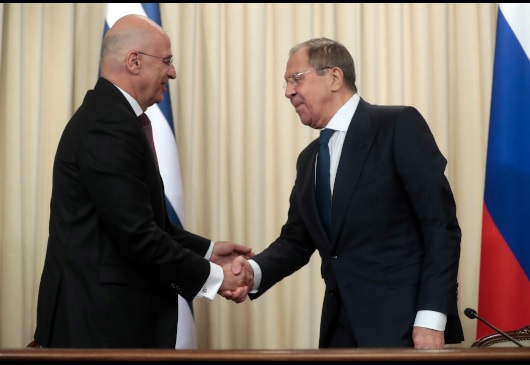Greek-Russian relations will remain unaffected by the Ukrainian ecclesiastical issue, according to Sergey Lavrov’s relative assertion to Nikos Dendias.
The Greek Minister of Foreign Affairs, who is officially visiting Russia, has publicly announced that he has received assurances from his counterpart Lavrov that the ecclesiastical developments in Ukraine will not be an issue or an obstacle to the dialogue, deepening, and extension of relations between Greece and Russia.
The head of Greek diplomacy, at a press conference after his regular meeting with Sergey Lavrov, was asked whether he believed the decision of the Greek Church hierarchy to recognize the Church of Ukraine was a product of political pressure and whether the ecclesiastical controversy may affect the bilateral relations with Russia.
Nikos Dendias emphasized that “today’s Greek State fully respects the role and autonomy of the Church of Greece and its distinct role. And, of course, as a self-evident consequence it does not interfere with strictly ecclesiastical issues.” As the Greek Foreign Minister said, Sergey Lavrov assured him that the ecclesiastical aspect of the Ukrainian issue would not be an issue or an obstacle to the dialogue, deepening and extension of relations between Greece and Russia.
Nikos Dendias also recalled the passage from the Matthew Gospel and Jesus’ phrase “Render unto Caesar the things that are Caesar’s, and unto God the things that are God’s” in defense of the decision of the Hierarchy of the Church of Greece to recognize the Orthodox Church of Ukraine.
Lavrov’s assurances to Nikos Dendias that Ukraine’s recognition by the Church of Greece will not affect Greek-Russian relations are in stark contrast to the provocative list of shame released by the Moscow Patriarchate’s religious tourism agency a few days ago, that announced a list of “unwanted” Metropolises in Greece, calling on Russian tourists and pilgrims not to visit them.
